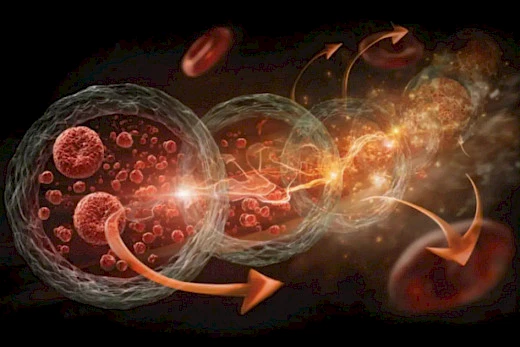Scientists have discovered that aging can be transmitted through blood

South Korean researchers from Korea University have made a breakthrough in understanding how aging spreads through the body. According to their data, aging is not just the result of wear in individual cells, but a systemic process that can be transmitted from one tissue to another via the bloodstream. The main “conveyor” of this signal turned out to be a protein called HMGB1 in its restored form (ReHMGB1).
In their studies, scientists found that ReHMGB1 released by aging cells enters the blood and activates aging processes in other parts of the body. This leads to reduced regenerative capacity of tissues, increased inflammation, and diminished organ function.
When researchers attempted to neutralize ReHMGB1 using specific antibodies, the results were impressive: laboratory mice showed significantly reduced signs of aging, improved muscle tissue regeneration, and enhanced physical activity after injury.
Project lead Professor Ok‑Hee Chung explained that for the first time they demonstrated that aging is not only a local, but also a systemic process — and that ReHMGB1 plays a key role in its “propagation.” Moreover, they showed that the oxidized form of the same protein (OxHMGB1) does not have this effect, making ReHMGB1 a more specific target for future therapies.
As a result of introducing ReHMGB1 in test animals, researchers observed upregulation of p21 and p16 genes — classical biomarkers of cellular aging — as well as increased levels of inflammatory factors, confirming its role in triggering age-related changes. However, with neutralizing antibodies, these processes slowed and tissue regeneration accelerated.
The study was published in the reputable international journal Metabolism – Clinical and Experimental, and its significance has already been acknowledged by experts from the universities of Berkeley and Tufts.
This discovery paves the way for developing new approaches to combat age-related diseases and slow aging — not just locally, but across the entire organism.


